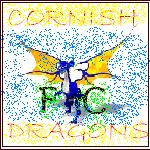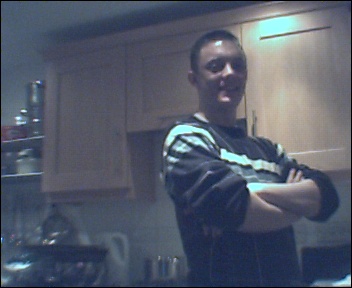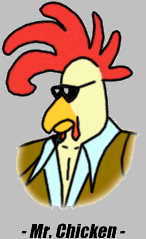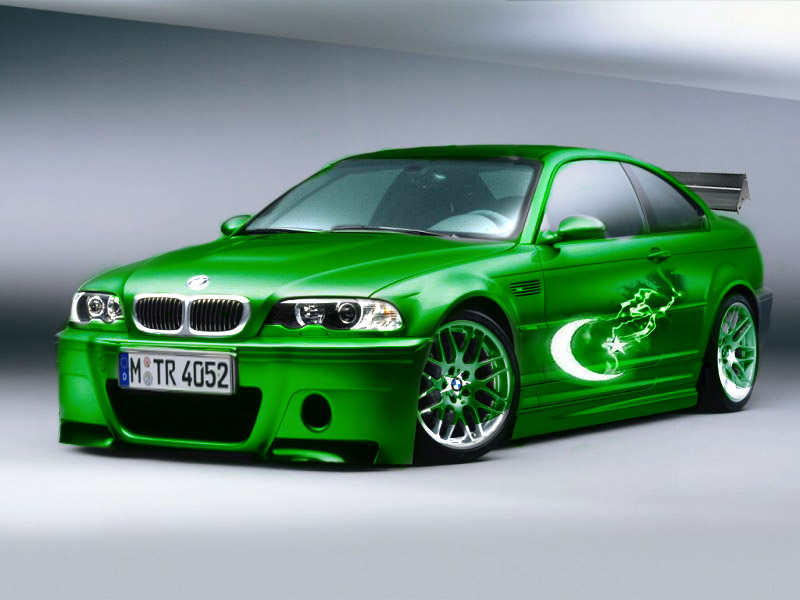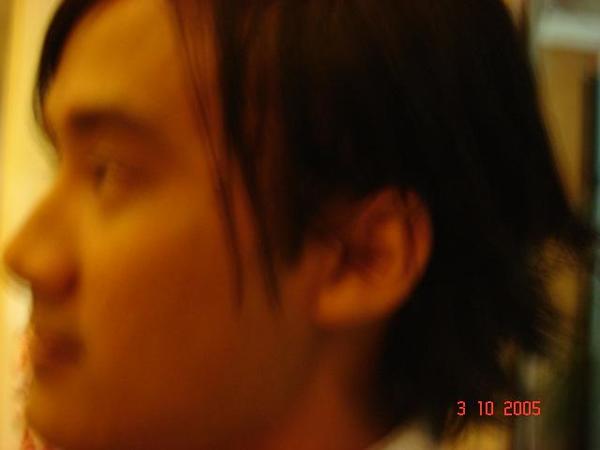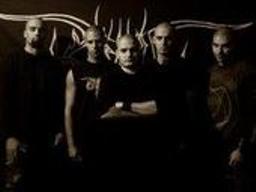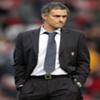Introduction
Since I have been a manger for more than 10 seasons, I have spent a lot of time in the chat sessions answering questions from new managers and helping them out with their teams in the first days of membership in Manager League (ML). Throughout most of this time, I have noticed that much of my time working with the new managers requires some very common and basic steps to get thing moving in the right direction. Some of them are so basic that every manager should be doing them as their first steps in the game.
So I decided that I would put together a list of things that new managers need to do, understand, and analyse in their own team as part of their first days in ML. I will let others help them out once they have a team capable of winning and making enough money to survive, this is a blog to help those new managers take their first steps, make fewer mistakes, and start off going in the right direction.
Basics
There are three things every manager should do in their first minutes of reading this. I have laid these out in very simple steps with very basic reasons for doing this. For those of us who have played for several seasons, many of these are things we wouldn't even consider telling anyone, because it was the first things we did (or realized we should have done).
Step 1: Upgrade your stadium capacity. You accomplish this by going under the Economy menu and selecting Stadium. Once the stadium screen is up, choose to upgrade from 5000 seats to 10000 seats. This will take several rounds while you employ some local kids to steal outdoor furniture and place it on the hill next to your football pitch.

It takes a little time, but you can get twice as many fans to come to the games and allows you to make more money.
The goal is to build your stadium up to 20000 seats before you build anything else. Once you have reached that target, you can start building your shop and restaurant. These are the most important items to build in order to ensure a consistent flow of money into your stadium.
(Some people will say to start building the shop and restaurant after reaching 15000 seats, but this only works for people who play home friendly matches on a regular basis. If you find yourself playing dozens of home friendlies each season, this is probably better, but in general I would stick to my plan of 20000.)
Step 2: Sack the bad players on your team. The ones you want to sack are those players with a Quality (Q) rating below 60. Also, any player over 30 with a Q of 65 or lower should also be sacked. You accomplish this by going into Team Selection on the Team menu. If you select the player, you will get a window showing details about the player, and below that is an option to sack the player. Do this until you have only 18 players left (or more if you started with a lot of capable players), going from lowest Q first. Don't worry if you got rid of all your players in one position, because we will later buy replacements for them.
Your team buys contracts of all the players on your team. This means you must pay them every round, even if they don't play. When you sell a player to another team, they take the contract and are now required to pay them each round. If you sack a player, the player buys his contract back from the team at 1/4 of his value. What this means is that you actually can make money by sacking players. Good players are normally better off being ssold, but no one will buy bad players, so there is no reason to try to sell them. Sack them so you aren't paying them anymore, and actually earn money by doing it.
Step 3: Set your finances. Go under the Economy tab and select Finances. In that window you need to do two things. First is to set your ticket prices to 30 and your profits for shop and restaurant to 100 each. Second, you want to select a sponsor. For almost everyone, I suggest taking the one that pays the highest upfront money. This will give you the most money to set up your team. Later seasons you will probably look into getting a sponsor that pays better for winning more, but to get started, you will need some cash, so get a good up front sponsor.
The concept of finances is to earn a profit. This involves two things - making money and cutting spending. You can cut spending by sacking players that don't play on your team (which we already did). Making money is done by having home games that fill the stadium to the maximum. Of the 30 games you play each season, half of them are at home. Which means each home game you need to make enough money to pay your team for two weeks. With a 30$ ticket price, even losing teams can fill the stands. Winning teams can experiment by raising the ticket prices 1$ at a time until you no longer have a full stadium at your home games.
Step 4: Read the Help system. The most important for the moment is the Getting Started (parts 1 and 2). This will give you a quick rundown of the features in the game without too much detail. However, the help system proves to be very ... helpful, so use it often and try to read as much of it as you can over the next couple of days. It discusses all the options under all the menus. However, it isn't very good at telling you what to do to be successful, and that is what I am trying to do.
Fundamentals
Fitness: Fitness is a rating of how physically prepared a player is for a game. 100 is the peak of fitness, as there is no rating higher than 100. Anything below 80 is considered injured and the player will automatically be substituted come game time. No one knows exactly how fitness affects performance, so rather than worry about it, I try to think of it this way - a Q70 player at 100 fitness plays like a Q70 player (100% x Q70 = Q70); meanwhile a Q70 player at 90 fitness plays like a Q63 player (90% x Q70 = Q63). For this reason good managers want their players at or near 100 when it comes time for games.
Fitness improves by 2 points at every training session (between each game). You can improve the rate that players recover by resting them during training. There are two ways of doing this under the Team menu. Team Training gives 4 options for skills to train. Each time rest is chosen as an option, all players on the team gain an extra fitness up to a maximum of 4 fitness assuming all for options are set to rest. The other option is Individual Training, where you can select a rest option for any player needing extra rest. Resting an individual gives them 10% of their Stamina skill as fitness. Most people will rest individuals whose fitness falls below 95, but will use team rest options if a majority of the starting team has fitness between 95 and 97.
One way to maintain fitness is by setting your team tactics to soft tackles. This is done in the Team menu, under the Tactics Option. You can select tackles to Soft, Normal or Hard. Soft tackles means that you are not trying to hit anyone too hard, but it greatly reduces the number of injuries and bookings that you get. It also means less wear and tear on players so their fitness normally stays higher. Normal and hard tackles might be useful in playoff games where you are looking to play a little tighter game, but if you have players that get a lot of bookings, you may find your players removed from the game on a red card rather because they played too tight. The general consensus is to play soft as often as possible (and always during friendly matches).
Morale: If fitness rates a player's physical preparedness, morale represents a team's mental preparedness. Morale is rated for the whole team and affects every player equally. Morale starts at 50 each season and is normally adjusted by wins and losses. You can also train in morale, and most managers spend the first couple of training sessions setting all four team training options to morale. Teams with good morale play better than teams with bad morale.
Winning normally raises morale by two points and losing will reduce it by two points. If you ties in your match, there is very little increase in morale. However, the opponent you play will also affect your morale increase. If you win against a team ranked above you, you can gain an extra 1-2 morale points, while winning against a team ranked below you will often reduce your morale gain by 1. So beating a poorer team can result in only 1 morale gain, or even none if the difference in team quality is high enough. On the other side, if you lose against a better team, you often won't lose more than 1 morale point, while losing to a team ranked below you can result in 4 points of morale lost.
Morale is not affected by friendly matches, since they are not intended to be competitive. However, league matches and cup matches do affect morale. A great way to gain morale early in the season is to join in cup matches that you have a good shot of winning. A few extra wins early in the season can boost morale quickly.
Skills: Skills are a rating of a players ability. Each player has nine skills rated from 0 to 100. Quality is an aggregate score based on a complex formula that no one has figured out yet. Any player can play in any position on the pitch, but players are given a position (GK, Def, Mid, Att) based on their best skills. That means each position has a skill that is primarily used to determine player performance, and three secondary skills. The rest of the skills may be useful, but are not as focused on to play their position.
Goalkeepers (GK): Primary - Keeping, Secondary - Perception, Speed, Passing
Defenders (Def): Primary - Tackling, Secondary - Passing, Stamina, Speed
Midfielder (Mid): Primary - Passing, Secondary - Speed, Shooting, Tacking
Attacker (Att): Primary - Shooting, Secondary - Speed, Perception, Heading
The secondary skills are listed in order of importance. When seeking new players or evaluating existing players, you should focus on getting their primary skills as high as possible and balancing out the secondary skills. I often consider a player to be in good balance when the primary skill is 5-10 points above their Q, and secondary skills 0-5 points above Q. At lower quality levels this is hard to maintain because as you close in on this, the players Q will increase to reflect the improvements made in training.
There are several hidden skills and no one has determined them all. However, it has been suggested that the following are pretty accurate. Experience is a rating of how experienced a player they are. More experienced players do better in corner kicks and free kicks, and make the best captains on the team. Potential is a rating of how well a player will improve over time with training. Potential drops as players age it seems but some players can maintain a good training potential into their 30s. Scouts seem to be the best way to determine which players have bad potential, by weeding them out of the transfer list, but there is no way to determine how good potential is. Last seems to be a rating of coolness in game. Players with bad coolness tend to lose it during play and often end up committing stupid or dangerous fouls much more frequently. If you have a player getting frequent cards, and seem to be banned from games regularly, he probably doesn't have a good coolness rating. Setting tackles to soft will often minimize the danger they pose to their team.
Some skills are useful, even if they aren't listed as secondary skills. Perception is used for most set pieces and for scoring goals. A midfielder with a very low perception is almost blind to the possibilities on the field. Stamina is a rating of how resistant a person is to becoming injured. Low stamina players can be injured during a game with even soft tackles on. In addition, it also affects how quickly they recover from injury. Speed is a rating that is secondary to every position, never underestimate the importance of speed, and the hazard of being too slow.
The Team
Depth: The first and foremost focus is that you try to make sure that you will have at least 2 goalkeepers, 6 defenders, 6 midfielders, and 3 attackers. This makes up 17 players and the minimum allowed on the team is 18. However, this doesn't mean that you have enough to fill out the team. Perhaps you have sacked all your goalkeepers, of 4 of 7 defenders. You are going to need to build that team up to a level where you can have the minimum number in each position. However, this is not the time to start hiring, we are still evaluating the team, but you need to start noting what players you will need at which positions, and which positions you already have the depth to field your team.
Since your worst players have already been removed from the team, you need to start building your team. This also includes planning for the future. Players that are over 30 years old probably only have 1-2 years of use left on your team, so you will also want to consider the number of aging players per position. At this point, I suggest that a new manager start taking some notes. Write down the four positions (GK, Def, Mid, Att) in a column. Next to that write down the number of players with a Q of 70 or above, Next to that write down the number of players with a Q68 or above AND that are also less than 30 years old. Compare that to the 2 GK, 6 Def, 6 Mid, 3 Att minimums. This will help you determine your current strengths, and your future needs.
Looking at the numbers you just wrote down, which area has the highest number of Q70+ players. That is going to be the strength of your team for this season. If it also has the highest number of Q68+/30- players, that is also going to be a future strength for you. You will want to focus on designing a team that maximizes that group. If it is defense, you will be looking at 5-4-1, 5-3-2, and 4-4-2 formations. If it is midfield, you want to look at 4-5-1, 3-5-2, 3-6-1 and 4-4-2 formations. And if it is attacking, you want to look at 3-4-3 and 4-3-3 formations.
By choosing your strength early, it allows you room to build a team with a focus on the number and types of depth you will need for your replacements. It will also let you know if you only have 5 defenders and midfield as your strong point, that you will only need 1 defender to complete the team. However, if you only have 5 defenders and that is your strength as well, you will probably need at least 2 more defenders. Also, if you are strong in defense and looking at a 5-4-1 formation, what do your 5 defenders look like. Are they all Q68+, or do you have a few Q62 thrown in there. If your have Q62, you probably will want to find a defender with a Q68/Q69 if you have any money left over after filling out your team in other positions.
Balance: Once you have eliminated the poorest players from your team, you need to start the process of analyzing the players and how they make up your team. One of the most overlooked areas is the players individual skills. A good player has the primary skill 5-10 points above their Q, and secondary skills 0-5 points above Q. If you have a player with some very low skills in secondary areas, you will have to consider the player to not be as strong as his Q might show. The big ones for these are GK, which when purchased often have either a low Per or low Spd. While their keeping may be high, the lack of a secondary skill may make them much weaker in performing their tasks.
At this point, you will want to note the players, his position, what the weakness is, and their age.
(Players over 30 with low speed are likely to decline very rapidly and will likely need to be replaced once you have balanced out your depth.) Keep notes about these players, and see if they improve that skill during the year. If they don't show much improvement, you will likely want to look for a replacement in the near future. Also, when you are looking for new players, you will want to make sure they are more balanced if you plan on using them immediately. If you have the depth already to train a players weak spots, then they may be a good addition.
Next thing to do is to look over the age of your team by position. Young players improve more quickly than aging players. 19 is the best year for improvements, and after that players are less likely to improve. Players with good potential at age 17 can improve 3Q each season if trained well. That means a Q68 player could be Q77 by the time they are 20. This can be the thing that takes your team into higher divisions. Be on the lookout for good young players as you get started, they may not only be good for your team right away, but they could also be the future of your team.
Shopping: Once you know what you have, where you are strongest and where you have weakness that need training before they become playable, you should have a very concrete list of what you need. First priority is filling out the depth of your team, making sure you have enough players in each position. After that, you will want to note what positions may need some extra support if you have enough resources to buy an extra player.
Note: Make sure you save about 3 million dollars for your next stadium upgrades. You can always buy more players later, but you probably can't sack or sell enough players to get a stadium upgrade without a lot of hard work. Marking 3 million ahead of time can save you a lot of frustration.
The transfer list is where you will find all your options to fill out your team. It is very useful, and can be a bit complicated, so I first suggest taking a lot of time and practice searching. Search in each position and see what options are available. Normally there are a lot of Q68 and Q69 players that are teamless. Teamless players will join your team immediately if you meet their value, and is the fastest and best way to fill out your depth of players. You can also search for players on other teams, but there is a 16 hour minimum bidding process so you will miss at least two games before that player even has a chance of joining your team, assuming you don't get out-bid by another team.
If you have a critical position that needs to be filled - a main goalkeeper or main attacker - you might want to consider using a scout. They are hired to eliminate the players with poor potentials from the transfer list, BUT they can only be used
ONCE each season. This means you want to have your search criteria perfected before selecting the Use Scout option, and the scout will only eliminate the poor potentials from the first page of your search. If you choose to hire a scout, make sure it is of excellent quality to eliminate as many poor potentials as possible.
You should note that the least expensive players with good quality are age 17-18 and 31-37. You will want to make sure that your price range and age ranges are set appropriately before searching. Older players can be very helpful for short-term boosts in a single position - especially GK or Att where fewer players get more opportunities. Normally however, you will do better seeking youths (17-18). Make sure you are buying at a level where you can get all the players you need. If you only have 8mil to spend on two players, don't spend 5.2 on the first one - you can't buy much for 2.8mil.
Focus on getting Gk and Att first when filling out your depth. Because you need fewer of them, they often have a greater impact. It is also why many people use a scout for that position, and might take their chances at midfield and defense. Focus on getting balanced players, midfielders with 48 in speed doesn't help much even if they have 80 passing and tackling. Always look for a good perception, they often make the best captains later in their careers. Goalkeepers can do without passing to start with (or maybe even through their whole careers), but a nice stamina can save late game goals. If you have a choice between a Q68 and a Q69, always go with the Q69, unless there is a significant difference in primary ability. Remember to keep your players balanced.
Playing
Formation: You should already have a focus on the formations you think best based on the strength of your team. However, you need to re-evaluate after making your purchases from the transfer market, as some of your strengths may have shifted. For the rest of this season, I suggest playing a variety of formations, see what ones work well, see what others are using against you, see how your players perform individually. Maybe that midfielder with the low speed plays well despite the weakness.
There are blogs where people discuss the various formations, what are are used for most often, strengths and weaknesses. I suggest you read through them at some point. They are worth reading, but actual practice will let you know where your team strengths do best, and where your weaknesses are covered. What works for one team can be disaster for another, so don't ever listen to someone spout off how good a particular formation is and blindly switch. Give it a try, and abandon it if it doesn't work. Also, just because something doesn't work with your team now, try it again later and you might have adjusted enough to make use of it.
Always remember that a good defense can make a good Gk shine. A good midfield, properly used can fill holes in both attack and defense. And a good attack can overcome poor keeping, if you can keep possession of the ball, especially toward the end of the game.
Training: Morale tends to be low for everyone at the beginning of the season. Setting several team trainings to Morale can improve your early performance and earn you a couple wins early. Those wins can raise your morale even further allowing you to transfer training to other aspects of the team. The most important training areas for starting managers are Attack, Defense, Teamplay, and Understanding. Since all these build from season to season (except morale), getting a headstart on them can mean a few extra wins each season.
Training players is mostly a matter of correcting imbalances. Since lower skills improve faster, correcting a poor skill can come quickly. However, most players have a hard time gaining more than +5 or +6 in a single skill throughout a season. If you know a player has reached +6 in a skill, it would be worth focusing on another skill to build and wait until next year to finish correcting the problem. Hiring training coaches will improve the training of players, however the value of this is hotly debated. Many feel that the gains are not worth the monetary cost. Also, many players play friendlies and rest players during training, limiting the value even more. If you find you are frequently resting players during training, coaches might be worth holding off until you are making more than enough to pay your players and build your stadium.
Matches: There are four types of matches - league, cups, playoffs and friendlies. You league matches are played amongst the players in your department. You play each team twice each year, accumulating points. The winner of the league moves up to the next highest division, while the four lowest move down one division. Cup matches are single elimination games played normally on weekends. The number of teams determines how many matches are played. The winner of the cup is awarded a trophy. Division and Department cups are played by teams across all of ML, with the winner getting a trophy. Playoffs are played after the regular season, and are used to determine which teams (other than the top and four bottom) will relegate or promote from their division.
Friendlies are played in between league matches. They don't count and gain no morale benefit. The most common way is to join the ML chat and request friendlies. Sets are when two people exchange friendlies, alternating between home matches and away matches, where each team shares the cost of the match. Freebies are usually given by one team with no requirement for the other team to return the favour. Since sets use credits, teams that play many friendlies will often buy credits for the express purpose of playing friendlies. Friendlies also contain the benefit of allowing teams to improve their individual player skills. Players skills improve when they play a match, so frequently playing friendlies can increase a players improvements.
Pitfalls
- Not upgrading the stadium as often as possible.
- Sending players onto the pitch with low fitness.
- Buying expensive attackers and goalkeepers on the hopes of winning easy.
- Keeping low Q players until the contract "runs out."
- Playing high Q players despite poor performances
- Playing your favourite formations, despite not having players to play it well.
- Spending for a few extra players before building a foundation to pay for them.
- Having more than 1 team in Manager League (it is considered cheating, even if you don't abuse it)
 It takes a little time, but you can get twice as many fans to come to the games and allows you to make more money.
It takes a little time, but you can get twice as many fans to come to the games and allows you to make more money.